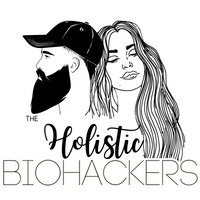
9 Best Foods for Energy and Concentration That Will Last All Day
This post is all about the 9 best foods for energy and concentration.
That 2pm energy crash is real- and when you have 3 kids and a never ending to-do list, there is no time for naps.
Long lasting energy without having to drink multiple cups of coffee can be difficult to come by, however, nutritious choices can significantly influence how your body processes and utilizes energy, helping you stay alert and focused throughout the day.
Here are the 9 best foods for energy and concentration that will last you all day AND other ways to ensure energy throughout your day!
1.) Water
Although not a food, drinking water is the single most important item on this list. No matter how many energy boosting foods you eat, if you are not drinking enough water, you will not have energy.
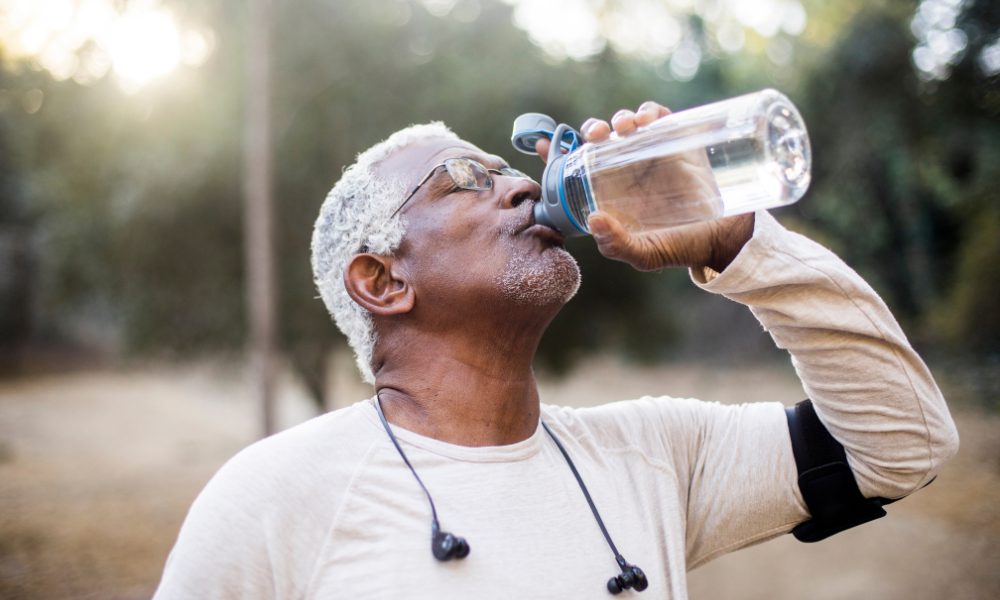
This study performed on 28 healthy older adults showed that lower hydration status was directly related to slowed psychomotor processing speed and poorer attention/memory performance.
For best results, Pinnacle Care Internal Medicine recommends you should be drinking at least 650 ml’s (3 cups) of water on an empty stomach when you wake up in the morning.
This not only increases oxygen to your brain, but also boosts metabolism and helps to flush out toxins that are slowing you down.
2.) Nuts
Nuts such as almonds, walnuts, cashews or pistachios all contain balanced amounts of carbs, fats and protein to help you stay alert and energized throughout your day.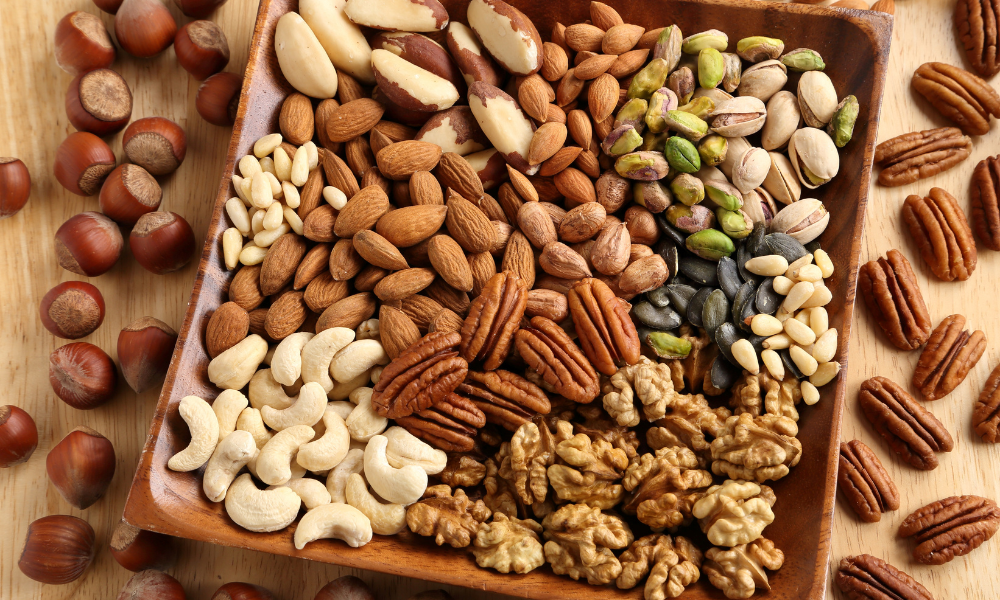
They also supply you with a good amount of vitamin C, magnesium and iron–a big essential for carrying oxygen to different areas of the body.
3.) Green Leafy Veggies
Spinach, kale and other dark, leafy greens are some of the most nutrient dense foods out there.
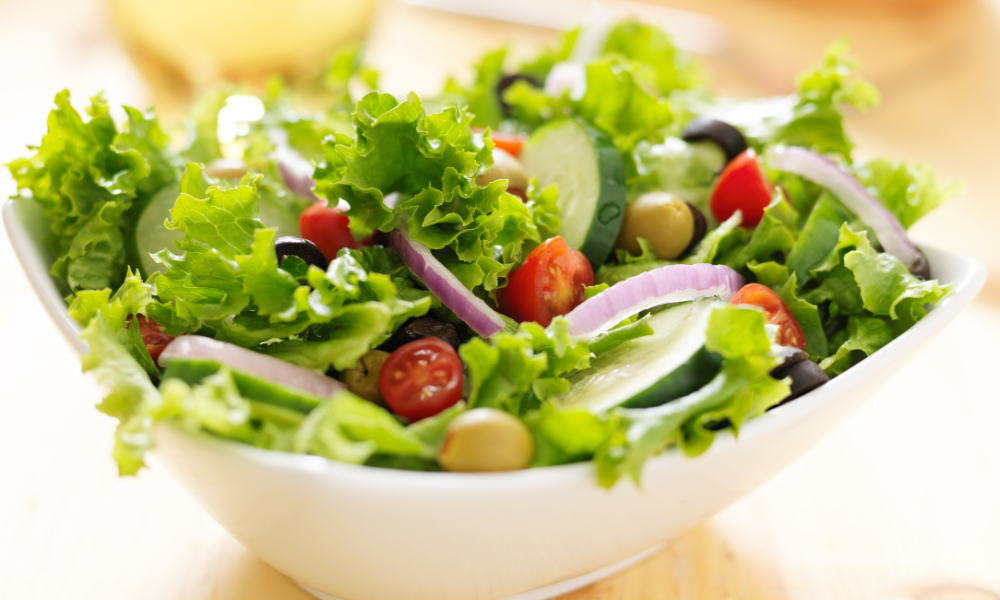
They are a great source of B vitamins- also known as the “energy vitamins”- along with iron, fiber and antioxidants. All being extremely beneficial for energy metabolism.
4.) Salmon
Salmon is known for it’s high amounts of omega-3 fatty acids which provide your cells with healthy calories for energy.
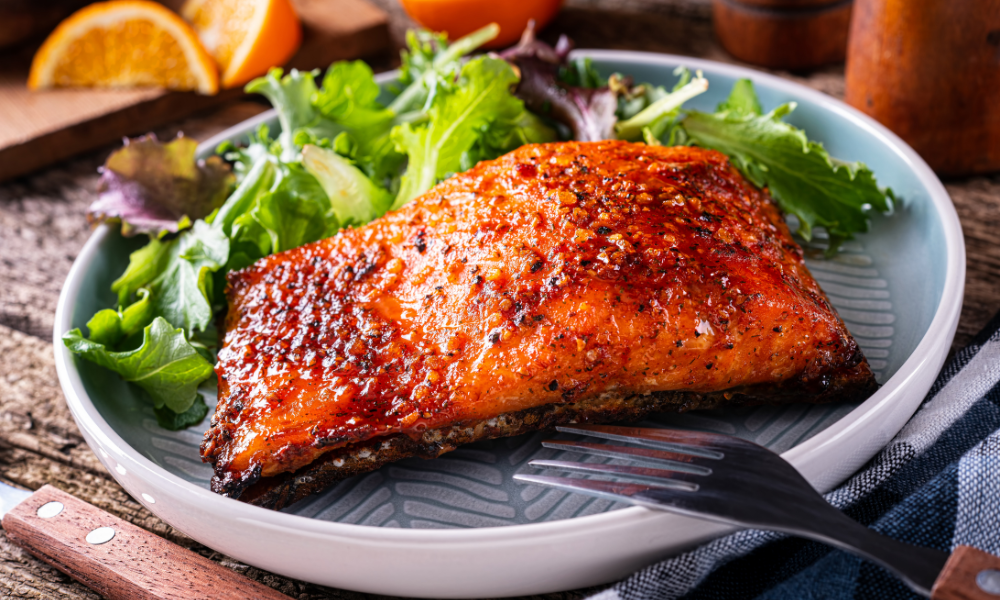
In addition, it is a rich source of vitamin B12- an essential puzzle piece to converting protein and fat into energy.
When choosing your salmon, always make sure to get wild caught (not farm raised) to ensure freshness and no toxins, diseases or parasites.
5.) Avocados
Avocados provide you with a large amount of the ‘good’ fats, fiber and B vitamins.
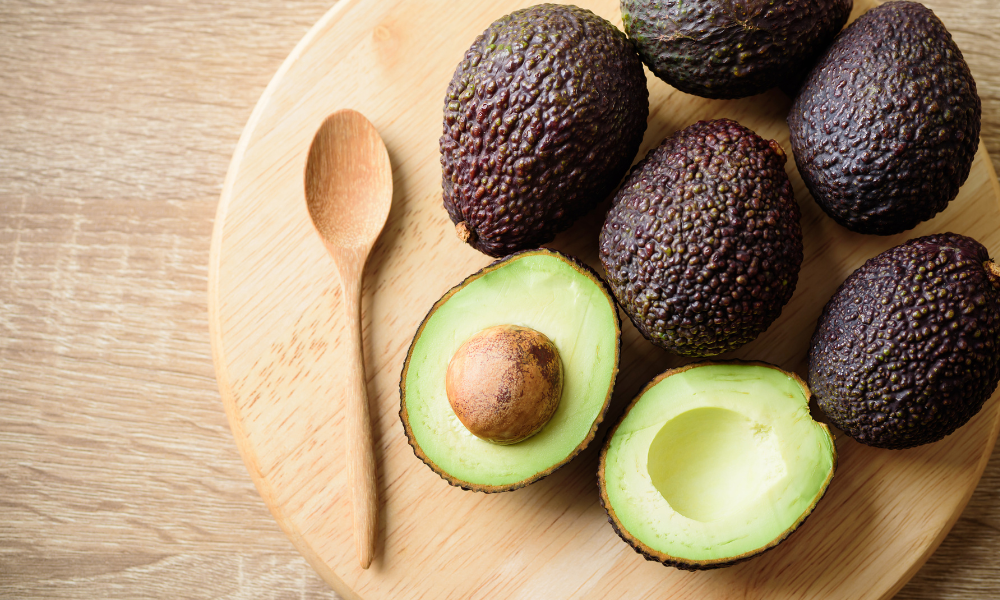
According to notes in this scientific article, avocados consist of around 80% dietary fiber as well as protein and other nutrients- all of which help to sustain energy throughout the day.
6.) Berries
These include blueberries, raspberries, blackberries and strawberries. Berries are not only delicious, but lower in sugar than most fruits meaning less of an energy spike and crash.
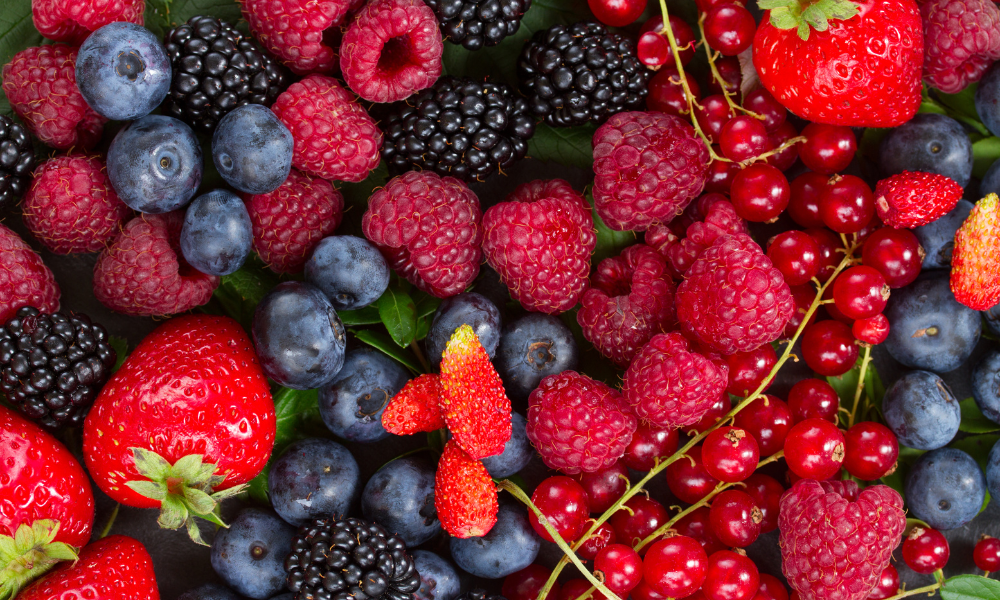
Berries are also full of anti-oxidants which protect your cells from toxins and damage as well as reduce fatigue and inflammation in the body.
7.) Oatmeal
As a cardiologist’s #1 breakfast recommendation, oatmeal is a wonderful complex carb option that is rich in fiber.
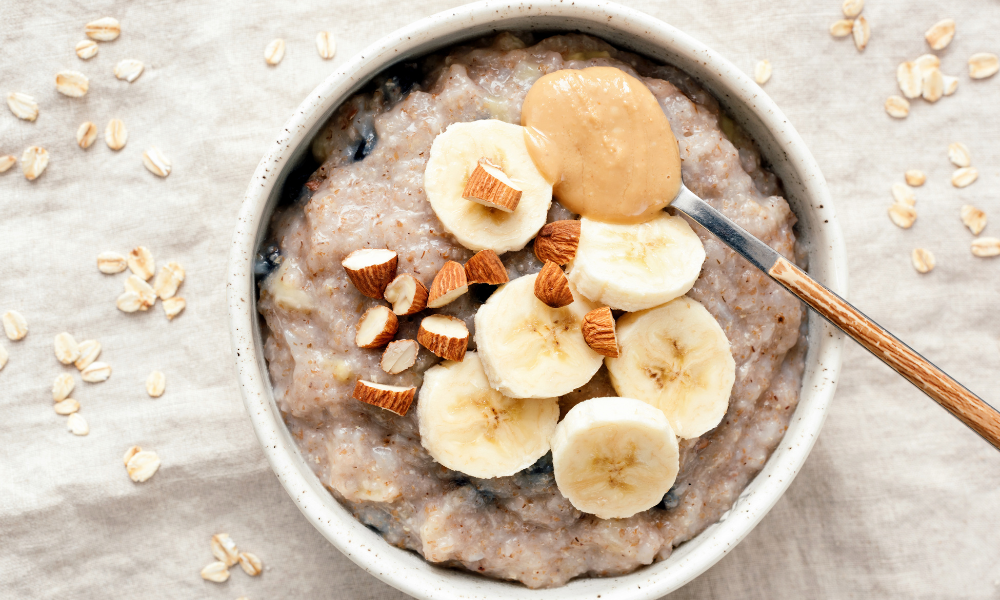
Oatmeal is ranked highly as a energy boosting breakfast due to its ability to digest slower with minimal insulin spikes.
Opt for low sugar oatmeal packs or make your own overnight oats. {Recipe here}
If you don’t like oatmeal, any high-fiber, whole grain cereal will also help with sustained energy.
8.) Greek Yogurt
Greek yogurt is packed with protein, fat and some even with probiotics that encourage a healthy gut microbiome.
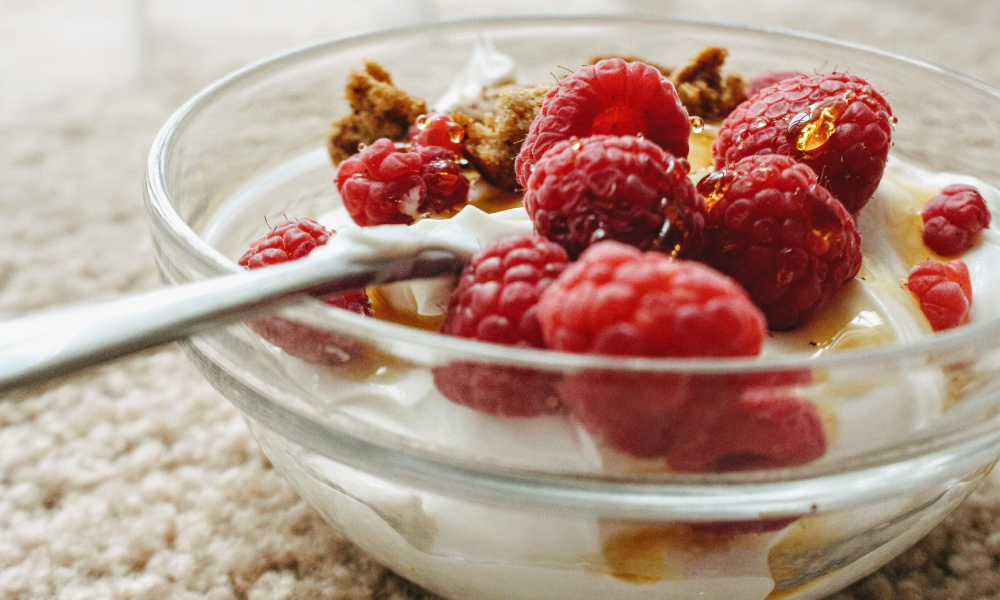
Add berries and nuts and you have made the ultimate energy boosting breakfast!
9.) Seeds
These seeds include pumpkin, squash, chia and flax seeds.
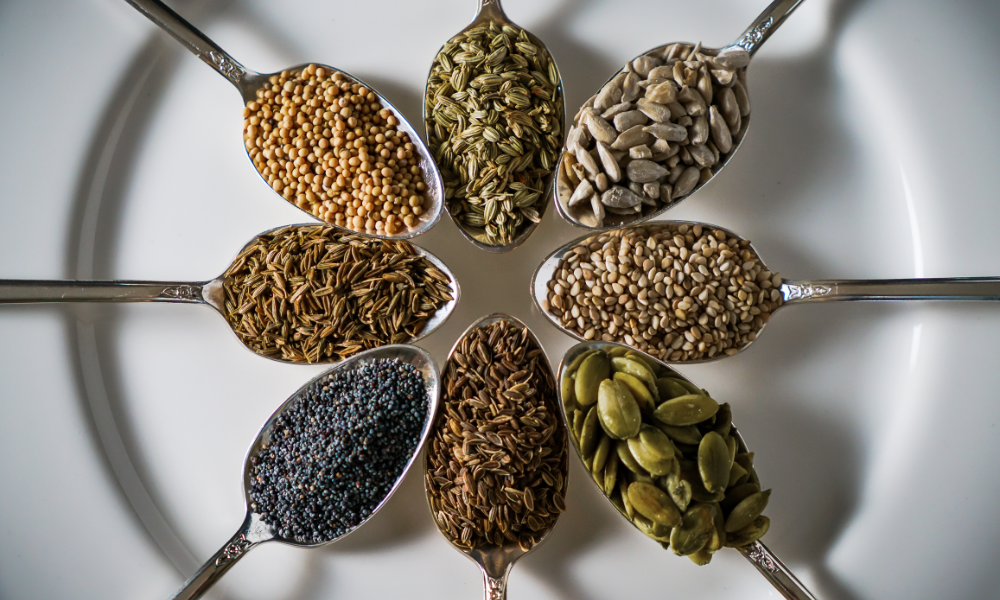
Seeds contain fiber, omega 3 fatty acids and tons of vitamins and minerals to keep you going all day.
More Tips
1. ) Make sure your meals are balanced
Include a mix of carbohydrates, fats, and proteins in your meals. This balance helps in steady energy release. Whole grains, lean proteins, and healthy fats are key components.
2.) Eat complex, not simple carbs
Foods that are rich in complex carbs slow down digestion and provide a more consistent energy supply, unlike simple carbs that can lead to energy spikes and crashes.
3.) Get enough sleep
Adequate and quality sleep is crucial for energy levels. Establish a regular sleep schedule and create a relaxing bedtime routine. Avoid screens and heavy meals close to bedtime to enhance sleep quality.
4.) Exercise during the day
Daily physical activity, even moderate like walking, can boost energy levels by improving sleep quality and reducing blood sugar levels. It keeps the body’s systems in a healthy and balanced state.
5.) Eat peppermint
Peppermint, whether in gum or essential oil form, can enhance mental alertness and energy. As research shows, it stimulates the brain, improving focus and calmness.
6.) Try sunlight in the morning
Sunlight, especially in the morning, can help regulate your body’s internal clock, improving sleep and energy levels. It also boosts the production of Vitamin D, essential for energy metabolism.
7.) Manage anxiety/depression
Mental health significantly impacts energy levels. Techniques like mindfulness, counseling, and proper medication, if needed, can help manage symptoms of anxiety and depression, leading to improved overall energy.
8.) Limit caffeine and sugar
While caffeine and sugar can offer a quick energy boost, they often lead to crashes. Moderating their intake can help maintain stable energy levels throughout the day.

